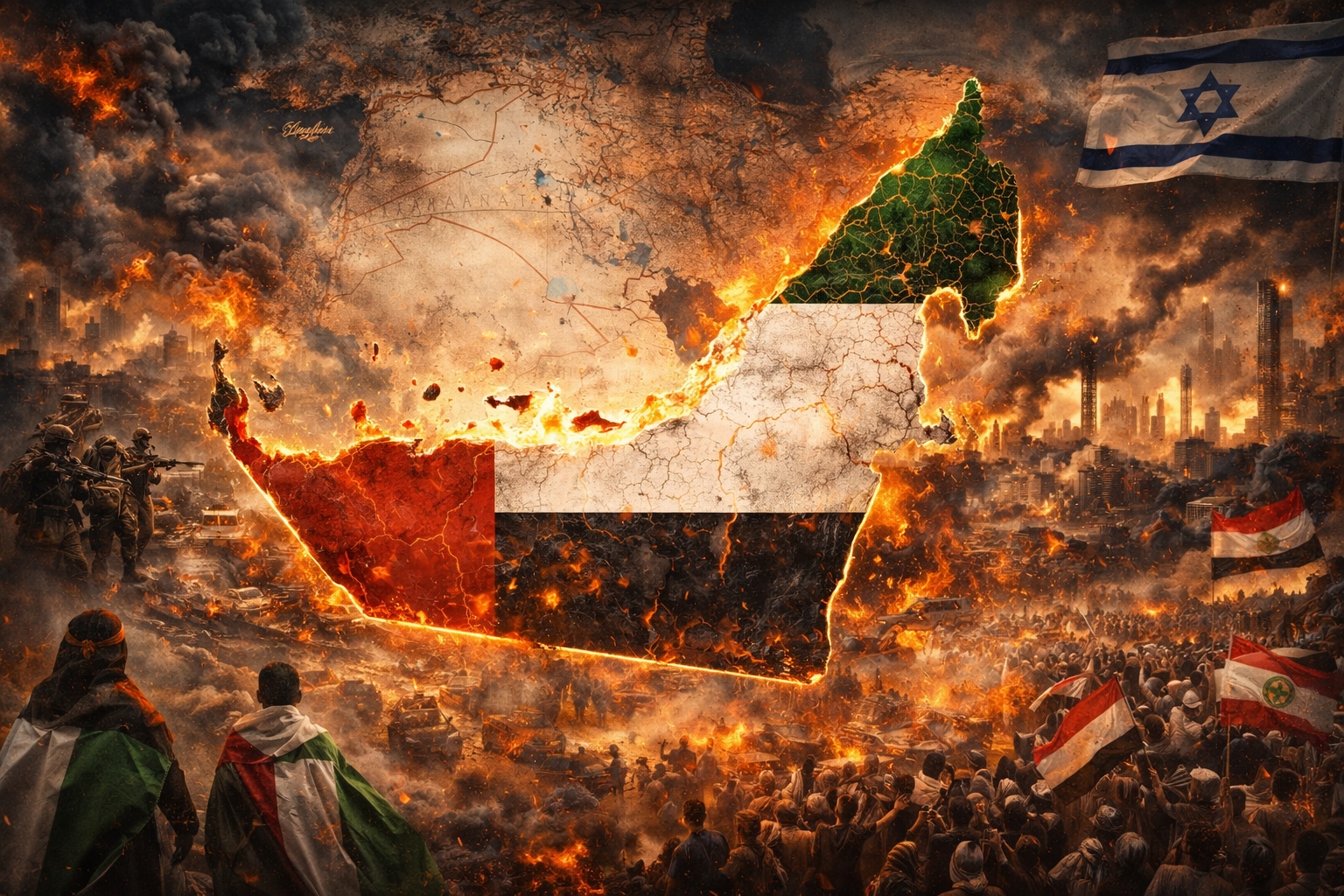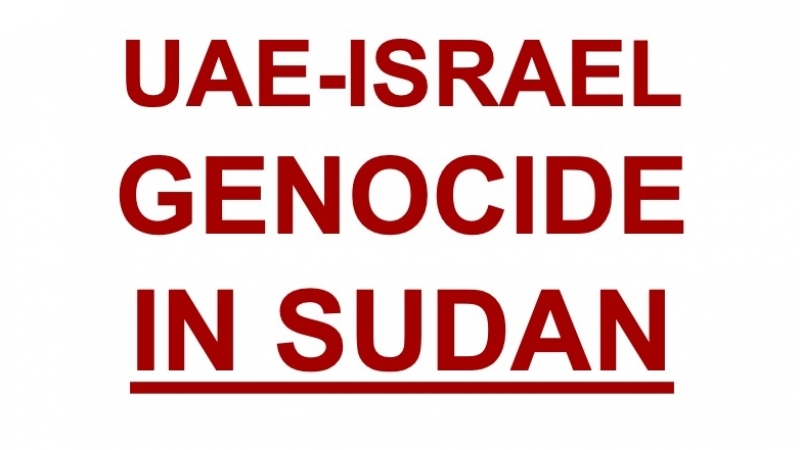



The UAE has a population of 10 million but only one million are locals. Despite its tiny size, it is acting as imperialist lite supporting militias in Sudan, Libya, Yemen and even established military bases on lands it does not own. Its tight embrace of zionist Israel is scandalous.
One of the leading Islamic political thinkers and activists, Dr Hasan al-Turabi passed away today in Khartoum. He was 84. A specialist in Islamic Law (he had a PhD in Islamic Law), he had contributed many books on the subject as well as served in various capacities in political office. Close to many Sudanese leaders, he eventually fell out with them ending in prison on numerous occasions.
When a puppet regime leads other puppets, the result is often disastrous. The Saudi regime of Najdi Bedouins cut off relations with Islamic Iran followed by their puppets in Bahrain and Sudan. The crime was committed by the Najid Bedouins in unjustly executing a respected alim and human rights activist, Sheikh Nimr al Nimr. The Najdi Bedouins will pay a heavy price for this crime.
With Egypt, Tunisia, Yemen, Libya and Syria engulfed in flames, how long could Sudan have been left unaffected?
The Zionist regime’s warplanes could not have reached Khartoum without using the airspace of regional countries.
Barring some unforeseen problems, South Sudan will hold its referendum on January 9, 2011 and almost certainly secede from the North. The largest country in Africa would have been dealt a terrible blow whose consequences will reverberate for decades.
Interestingly, the judges had refused to indict Bashir for alleged genocide, ignoring the application by ICC prosecutor, Luis Moreno-Ocampo, filed last year.
According to family members of Dr. No formal charges were filed nor did they have a warrant for his arrest...
For years British Muslims have been pressured by the government, media, think tanks, and even some Muslim community leaders to renounce violence as a means of bringing about change for their communities, both in the UK and abroad...
When Chadian President Idriss Deby visited Khartoum in mid-February and was embraced by President Omar al-Bashir of Sudan, the event was a great surprise to everyone familiar with the nature of hostility between the two countries...
Under the terms of a peace agreement signed in 2005 between northern and southern Sudan, the latter is expected to vote for secession in a referendum in 2011. But the traditional competition between nomadic groups in the south for the best cattle and grazing land has developed into a serious ethnic conflict in recent months, so the region could be too unstable to hold either the elections due next year or the referendum.
The latest crisis in Sudan began on March 14, when the international criminal court (ICC) in the Hague indicted President Omar al-Bashir on seven counts of war crimes and crimes against humanity, and issued a warrant for his arrest. Bashir is being held responsible for crimes allegedly committed by his command in the Western region of Darfur, since 2003, by security forces and allied groups said to be “Arab”, financed by the regime to suppress “non-Arab ethnic insurgents”.
The Somali pirates who recently hijacked a ship carrying Russian-made arms and tanks claimed that the weapons were bound for South Sudan. But the Kenyan government was adamant that they had been sent to Kenya, not South Sudan. The BBC World Service announced on October 7 that it had found evidence that the equipment had been intended for South Sudan, as claimed by the pirates.
The 2008 Global Peace Index (GPI), an annual study that ranks countries in terms of how "peaceful" they are, puts Sudan near the bottom of the world list, with only Somalia and Iraqbelow it. The main cause of the disruption in Africa’s largest country has been the civil war between the north and the south of the country, which began on the eve of independence in 1956 and persisted until a peace deal was signed in 2004.
Sudan and Chad are highly unstable neighbours, whose territorial integrity and national security are put at risk not only by internal feuding that spills over their common border but by direct hostility that drives them to support each other's insurgents and at times to go to war.
Many people reading the recent news from Darfur may be confused. On October 25, just days before peace talks on the conflict in Darfur were due to begin in Libya, anti-government rebels in Darfur were reported to have attacked oil installations in the neighbouring region of Kardofan, kidnapping two foreigners and warning other foreign oil workers that they had a week to leave the country or they would face similar attacks. The start of the talks in Sirte were then delayed because rebel groups refused to take part.


